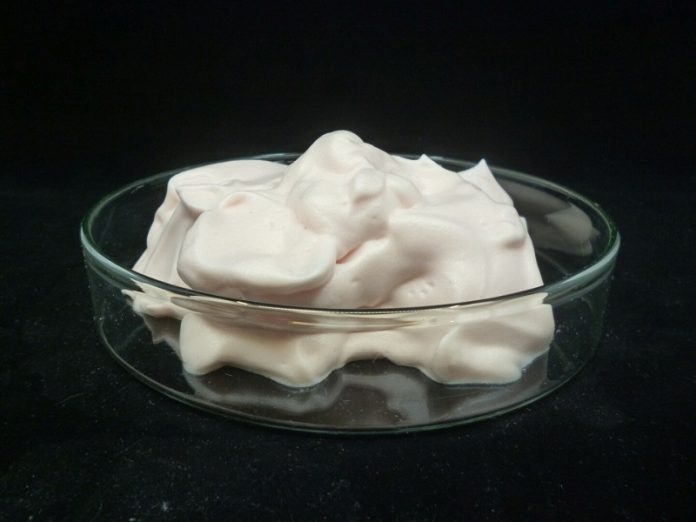
Egg whites have long been used to make baked goods light and airy, but researchers at the Fraunhofer Institute in Germany have developed a plant-based alternative using peas.
This innovation, part of the LeguFoam project, aims to create a vegan-friendly foam for baking that is healthy, ethical, and just as effective as traditional egg white foam.
“More people today want to eat healthy and choose vegan products for ethical reasons,” says Dr. Maike Föste, senior researcher at the Fraunhofer Institute.
“With LeguFoam, we’re meeting that need.”
How peas are turned into foam
The team uses fine pea flour to create their foam. Peas are ideal because they are neutral in flavor when processed correctly, making them versatile for baking.
The process begins by creating a protein concentrate from pea flour. This is done by mixing the flour with water to form a suspension, then adding an alkaline solution to increase the pH. This helps dissolve the proteins, which are then separated and concentrated using membranes and centrifugation.
The resulting protein concentrate is analyzed to test its ability to form foam and maintain stability. Foam is created by whipping the protein mixture, which incorporates tiny air bubbles. The proteins wrap around these bubbles, stabilizing them and creating a fluffy texture.
To improve the foaming properties of the pea protein, researchers use high-pressure homogenization, which adjusts the protein’s structure to make it more effective at stabilizing foam. By refining the protein’s functional properties, the team has come close to matching the performance of egg whites.
The researchers also test the foam’s stability over time by placing it in a container and measuring how much foam remains after a set period. Dr. Föste says, “We are getting very close to the quality of animal-derived foams and are working to improve long-term stability further.”
The team has already used their pea-based foam to make baked goods and conducted taste tests. While professional tasters could still notice a slight difference compared to traditional egg-based baked goods, the plant-based alternative was rated as tasty and appealing.
This new foam could open up exciting possibilities for creating vegan baked goods without compromising on texture or flavor. The researchers’ next steps will focus on enhancing the foam’s stability and refining the sensory qualities of the final products.
The LeguFoam project is paving the way for sustainable, plant-based innovations in baking, bringing us closer to a world where vegan options are as delicious as their traditional counterparts.
If you care about nutrition, please read studies about the benefits of low-dose lithium supplements, and low calorie diets may help reverse type 2 diabetes.
For more health information, please see recent studies about the best and worst foods for high blood pressure, and time-restricted eating: a simple way to fight aging and cancer.



